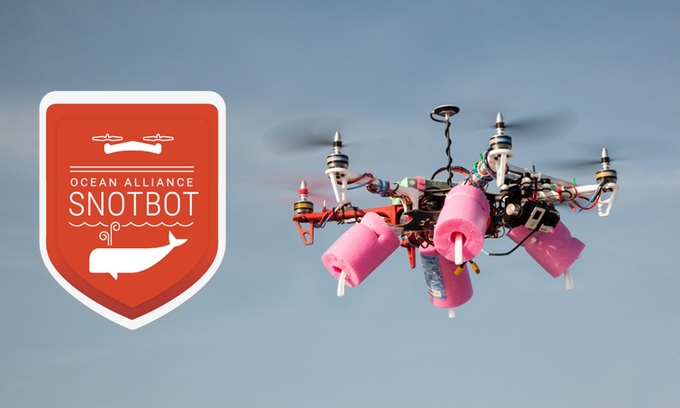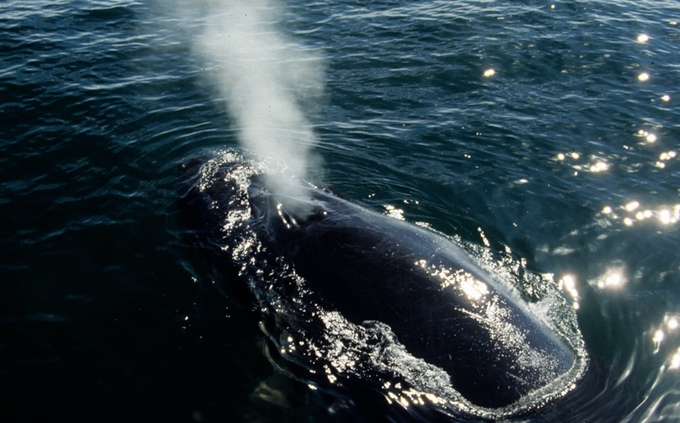The following NatureWorldReport.com article posted on July 24 by Ian Lang and with the title above is one of many regarding an innovative method of collecting data about whales:
Whales – why study them? Well, for starters they’re among the largest creatures to ever live on Earth, and most species happen to be threatened or endangered. The problem is, as smart as they are, whales lack the capacity to understand that the men in the noisy boats firing darts at them are trying to be helpful. A less-invasive method would be nice, but how? Enter Snotbot, the drone that collects the “blow” whales expel from their lungs.
The product of a partnership between Ocean Alliance and the Olin College of Engineering, Snotbots are something of a technological marvel. They’re waterproof and capable of collecting whale snot, yet still able to fly the one mile round-trip from a research vessel and back.
Mucous, seemingly an odd choice for whale research, is actually quite valuable. After collection by the Snotbot, researchers can analyze bacteria levels, DNA, and any toxins that may have infiltrated the whale’s system. It also allows them to check hormone levels, which will offer valuable insight into whales’ reproduction cycles and stress levels.
Now, Ocean Alliance has launched a Kickstarter campaign, where they’re aiming to crowdfund $225,000 to support three expeditions to sites Ocean Alliance calls “vital to the future survival of whales on our planet.” The three planned sites are Peninsular Valdez Patagonia, the Sea of Cortez and southeast Alaska’s Frederick Sound.



